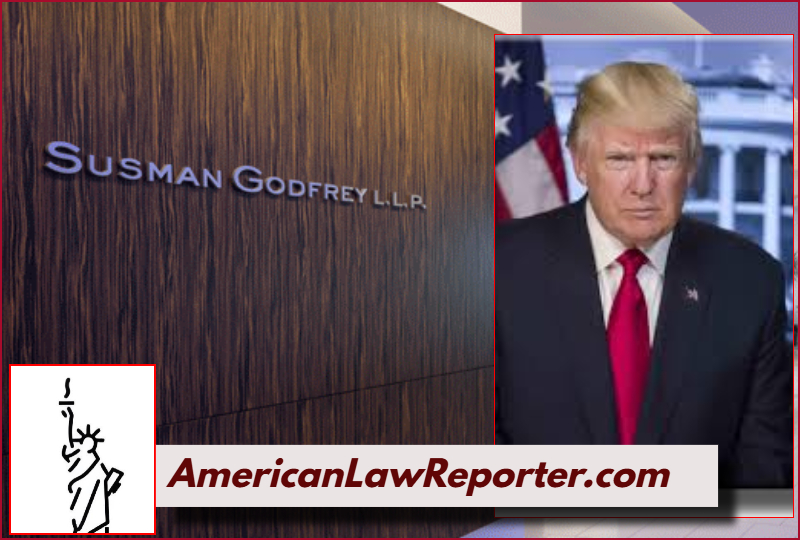In a high-stakes legal battle with constitutional implications, litigation powerhouse Susman Godfrey LLP on Monday, April 14, 2025, filed an emergency motion for a temporary restraining order to block enforcement of an executive order issued by President Donald Trump that targets the firm’s operations and clients.
The motion was filed in the U.S. District Court for the District of Columbia under case number 1:25-cv-01107, and a hearing has been scheduled before Judge Loren AliKhan for Tuesday at 2 p.m.
The firm is seeking swift judicial intervention to prevent what it calls “irreparable harm” to its practice and the rights of its clients.
“Emergency relief is necessary,” Susman Godfrey wrote in its filing, citing urgent constitutional and practical concerns.

The April 9 executive order, issued amid ongoing controversy surrounding federal contracting and DEI (diversity, equity, and inclusion) initiatives, bars lawyers from Susman Godfrey from entering federal buildings and instructs agencies to terminate federal contracts with the firm’s clients.
The White House justifies the order by pointing to the firm’s diversity fellowship programs, which offer a two-week experience and $3,500 scholarships to first- and second-year law students of color.
In a statement Monday, Susman Godfrey characterized the executive action as an unconstitutional attack on legal rights and due process.
“The order threatens the rights of our clients, including their right to legal counsel, while causing irreparable harm to Susman Godfrey,” the firm said.
While some top law firms—including Paul, Weiss; Kirkland & Ellis; Willkie Farr; and Latham & Watkins—have reportedly agreed to nearly $1 billion in collective pro bono services to avoid similar executive scrutiny, others have taken a different route.
Perkins Coie, WilmerHale, and Jenner & Block have each filed suit to block executive orders targeting their diversity efforts. In each of those cases, federal judges have temporarily stayed enforcement, at least in part.
Susman Godfrey now becomes the fourth major firm to challenge Trump’s post-presidency policy directives in court, joining a growing resistance within the legal profession to what many view as politically motivated interference with the independence of the bar.
The outcome of Tuesday’s hearing could set a significant precedent as the federal judiciary weighs the constitutional boundaries of executive power, especially when it intersects with diversity programming, access to legal representation, and contractual freedom in the private sector.

